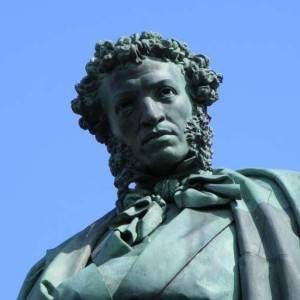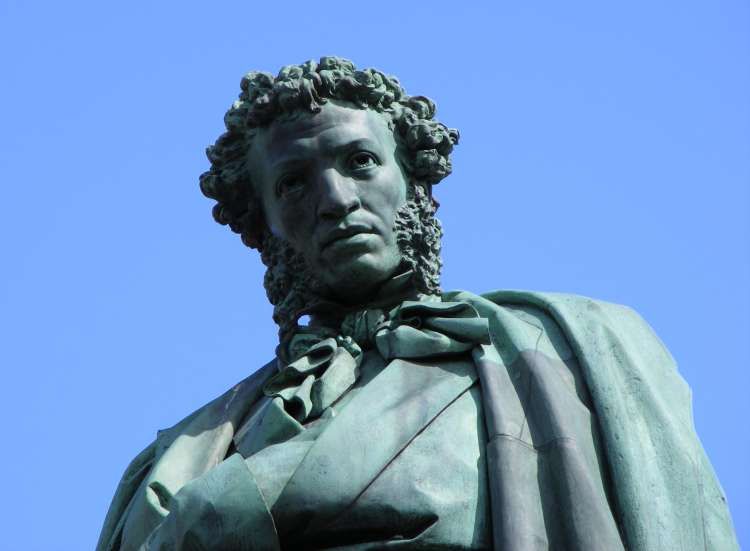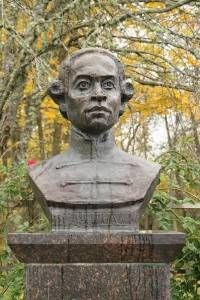
Alexander Pushkin’s Blackness
This is a guest post from Morgan Jerkins. Morgan graduated from Princeton University with an AB in Comparative Literature and is currently pursuing an MFA in Fiction at the Bennington Writing Seminars. Follow her on Twitter @MorganTheScribe.
____________________

One thing that the Russians pride themselves on is their literature and you can probably ask a child to recite lines from Eugene Onegin and he or she could do it. When I looked at this statue, I saw the image of a Black man and I cocked my head to the side in disbelief. Perhaps from a skewed Western media perspective, Russia has been painted as a land of deep-seated and widespread racism and xenophobia ever since the collapse of the Soviet Union, but it was not always this way. From about the ninth to 13th century, the Russian Orthodox Church influenced its people to not harbor racial prejudices towards anyone. But in the 1700 to 1800s, racism existed and it could be argued that this narrow view was due to the “europeanization” of Russia. Pushkin was born in 1799 and although he was an aristocrat, he was proud of his Blackness. In ‘Eugene Onegin’, he writes:
It’s time to drop astern the shape
and there, beneath your noonday sky,
my Africa,18 where waves break high,
to mourn for Russia’s gloomy savour,
land where I learned to love and weep,
land where my heart is buried deep.

Before I traveled to Russia, I was warned that there was a rise in high crimes and that the country had the highest number of Neo-Nazis in the entire world. But to this day, I’m not convinced as to why that is, despite my understanding of the social conditions that brought about this disharmony. If Russians revere Alexander Pushkin and his legendary works and owe their speech to his genius, why would some of them be racists towards Blacks like me? This inquiry still confounds me. I am aware that there is often a whitewashing of history, and literature is not an exception to this rule. But, Pushkin’s pride for his Blackness was undeniable. During the Soviet period, Africans who came to Russia in order to flee racial inequality were greeted with lines from Pushkin’s prose when they arrived off the plane, as a sort of welcome address.
Whether or not a writer is blatant about his ethnic identity, there tends to be a conflict between that and his nationality. Such an occurrence is not uncommon for Russian writers. For example, when discussing Gogol’s ancestry, Russians deem him a Russian writer while Ukrainians consider him to be a Ukrainian one. I understand the power in claiming a powerful figure as your own. There’s a sense of pride in being culturally connected to a literary giant, one that has transformed his society and language in unprecedented ways. It’s how I felt as a Black woman looking up at Pushkin’s statue, situated firmly on St. Petersburg soil. I sensed a bond. Even though Pushkin is Russian, he’s also Black to me. We as readers should always discuss how our cultural identities resonate with certain authors and perhaps these links texturize the ways in which we look at their works.
____________________
Like chattin’ up other readers and keeping track of your books on Goodreads? So do we! Come give us a follow.










